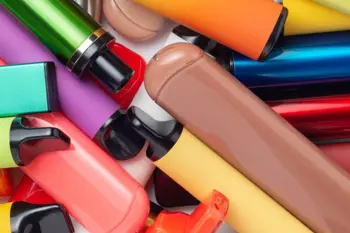The advent of delta 8 THC marked the first time an intoxicating hemp-derived cannabinoid was legally and chemically capable of competing commercially against marijuana and its primary active component delta 9 THC.
There are a lot more hemp-derived cannabis products available to consumers now than there were just a couple of years ago. Other delta 9 competitors have stepped in—but delta 8 products have remained the most popular, best-known, and most accessible. Marijuana isn’t federally legal in the United States, but delta 8 carts and delta 8 gummies are widely available.
Most users prefer one of these cannabinoids over the other, so let’s compare the two popular cannabis compounds and find out why.
What are delta 8 and delta 9 THC? Are they the same?
No, delta 8 THC (delta-8-tetrahydrocannabinol) and delta 9 THC (delta-9-tetrahydrocannabinol) aren’t the same substance, but they are closely related isomers and both forms of tetrahydrocannabinol (THC). Both were first identified several decades back; delta 8 in the 1940s and delta 9 in the 1960s. Although delta 8 THC (then called delta 6 THC) has been known longer, interest in its effects didn’t pick up until very recently. Even now, published studies are extremely limited.
Cannabis researchers are aware of over a hundred cannabinoids. Psychoactivity, or lack thereof, varies hugely between compounds. Their effects come down to how each interacts with our endocannabinoid system. If a cannabinoid binds effectively to the body’s CB1 receptor, it will produce the euphoria we associate with getting high. Both delta 8 and delta 9 THC bind to the CB1 receptor, although with varying degrees of effectiveness.
Hemp vs marijuana: where delta 8 and delta 9 come from
Both delta 9 and delta 8 THC are natural cannabinoids produced by flowering cannabis plants. Neither are byproducts of degradation, which is the case for CBN, a popular cannabinoid with next to no psychoactive effects.
Quantity is the first area where delta 8 and delta 9 split. Delta 9 THC is the primary active compound in marijuana, appearing in greater quantity than all other cannabinoids and terpenes. Certain marijuana strains selectively bred for high CBD content are exceptions, but in most marijuana varieties, delta 9 far outweighs all other active compounds.
Delta 8 THC, however, is a trace cannabinoid. It exists in such small quantities, in fact, that it wouldn’t be time or cost-efficient to extract it directly for commercial use.
Chemists isolate and extract delta 9 straight from marijuana. In order to get their hands on high quantities of delta 8 THC, manufacturers extract CBD, industrial hemp’s most abundant active cannabinoid, and then convert it into delta 8. CBD and delta 8 contain all the same components and share a chemical formula, but the pieces are arranged differently. Isomerization allows chemists to reposition bonds and convert CBD into delta 8.
Once they have the converted extract, manufacturers can create a variety of delta 8 products, including oil used in THC vape carts or the even more convenient delta 8 disposable vapes.
Delta 8 bud vs delta 9 bud: what’s the difference?
After isolating and extracting a cannabinoid from the plant’s biomass, chemists can manipulate it as needed. Dried and cured flower doesn’t afford the same luxury. It can be bred to contain more of a particular cannabinoid, but there’s a limit to this science. There simply isn’t enough delta 8 in freshly harvested hemp bud to make it useful for vaping or smoking.
The so-called delta 8 flower is just infused hemp. You’re buying standard CBD hemp bud that’s been sprayed with delta 8 distillate, an oil manufactured separately.
Delta 9 production from marijuana is the complete opposite. Naturally, delta 9 THC-rich strains aren’t in short supply, and selective breeding allows manufacturers to tweak that concentration as they see fit. It’s not unusual to see marijuana flower sold in dispensaries with THC content as high as 30% by weight. Some growers are after higher CBD levels, as well. High-CBD marijuana strains (which have noticeable amounts of THC, too) are popular for the unique and subtle high they produce.
Is infusion an unsafe practice? No, not if it’s done correctly. The products aren’t inherently of subpar quality, either. We’d actually recommend this route to delta 8 users who prefer flower over oil. As long as you’re purchasing from high-quality, third-party tested sellers, it’s worth trying out.
Delta 8 vs delta 9: how do they compare?
Now that we’ve laid down the basics, let’s take a closer look at both cannabinoids to see where they differ. Legality and accessibility are the biggest divides. In many ways, delta 8 and delta 9 THC have more in common than not, despite key variations in intensity and production.
How is delta 8 structurally different from delta 9?
As isomers, delta 8 and delta 9 THC are structurally similar, and they share both a molecular weight (314.45 g/mol) and chemical formula (C21H30O2).
All the same building blocks are there. They’re arranged almost identically, too, with only a single bond moved. Delta 8’s carbon double bond is found on the ring’s eighth atom, while delta 9’s is on the ninth. Modern naming conventions are based around the location of this bond. You’ll notice the same pattern in delta 10 THC, delta 11 THC, and other THC isomers.
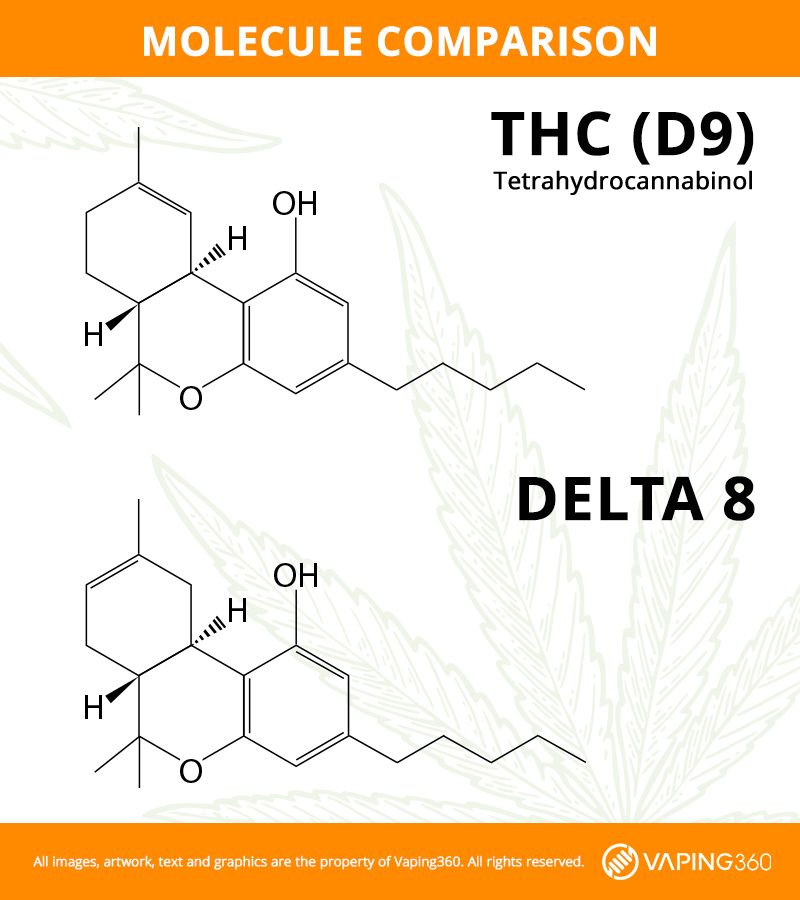
The length of delta 9 and delta 8’s carbon chains is the same: five atoms. With certain cannabinoids, the length of this chain clues us into the substance’s CB1 binding affinity and potency. THC’s psychoactive isomers aren’t so simple. Double bond movement is all that’s needed to modify their effects, even if slightly.
Is delta 8 more or less potent than delta 9?
Delta 8 THC is approximately half as psychoactive as delta 9. The high is noticeable to most, but it takes a larger dose to achieve comparable effects.
Don’t use this as an excuse to consume huge doses of delta 8 THC on your first go. Physiology, genetics, and tolerance are variable, and you may respond differently to delta 8 than you do delta 9. Differences in production quality can drastically alter a product’s potency, as well.
Even seasoned marijuana users should play it safe and start with the manufacturer’s recommended dose. New cannabis users are better off taking half of that amount or less. Sit back and wait for the effects to kick in before bumping up your intake.
It’s anecdotal and varies between users, but delta 8 highs can last as long as those from delta 9 THC. “Can” is the keyword here. Many seasoned marijuana users disagree, saying the delta 8 high fades more quickly for them, assuming the intoxicating effects stick around at all. Edibles are probably a better choice if you’re seeking a long-lasting high.
Highs from delta 8 THC are often more functional and clear-headed than those produced by delta 9. Regardless, there’s no guarantee that this will be every user’s experience. You’ll also need to consider the marijuana strain being compared, on top of differences in physiology, genetics, and so on. You really have to experiment a little to figure out how you’ll react to any cannabinoid.
Do delta 8 and delta 9 have the same side effects?
It depends on who you ask. In general, delta 9 and delta 8 THC seem to have similar side effects. Approach delta 8 with care if you’ve responded poorly to delta 9 THC, as differences in potency only go so far.
We’re waiting for trials exploring delta 8’s side effects in more detail. Based on a user survey, it may produce milder and fewer adverse reactions than its more potent sibling. Consumption of either cannabinoid could trigger:
- Dry mouth
- Bloodshot eyes
- Drowsiness or fatigue
- Changes in blood pressure
- Difficulty with problem-solving
- Mood and appetite changes
- Racing thoughts
Not everyone has positive experiences with either form of THC, and certain individuals are predisposed to anxiety or other adverse effects. It’s one of many reasons new users should start with a small dose and increase gradually.
Severe reactions, including paranoia or hallucinations, aren’t off the table—especially with large doses. Conversely, some users claim that delta 8 and delta 9 help them better manage stress. Some, however, report that they’ve traded their delta 9 for delta 8 THC, with reduced side effects playing a role in their decision.
Side effects are typically short-term and wane along with the high.
Is delta 8 safer than delta 9 THC?
Delta 8 is not necessarily safer, but the product’s source is important. Stay diligent about what you ingest. We’re still in the early days of the hemp market, and few states have safety regulations in place.
Hemp sellers must choose between cutting production costs to turn a larger profit, and spending extra to verify their products’ safety. Third-party testing isn’t required—except in the few states that regulate hemp-derived compounds through the state-controlled dispensary system. Just because a delta 8 THC products have reached the market, don’t assume that they’re all safe for consumption, or even that the manufacturer’s claims are accurate.
That sounds bleak, but don’t lose hope. Reliable sellers are out there. They’re not even difficult to find, especially if you’re searching online.
Check for a certificate of analysis (COA) before handing over your money. By outsourcing safety testing to a third-party laboratory, hemp companies can assure consumers that their products are free of contaminants and contain the advertised cannabinoids.
Marijuana and delta 9 products are heavily regulated in U.S. states with legal marijuana, as well as in other countries with full legalization, like Canada. Licensed dispensaries are only allowed to sell THC vape carts, edibles, and other products that have ticked all the safety boxes.
Do delta 8 and delta 9 THC have potential medical uses?
Let’s start by emphasizing potential. Given delta 9 THC’s contentious legal status, research isn’t as developed as it could be. We do have a sense of the possibilities. Delta 8 is more unclear, though promising trials exist.
One of the most impressive delta 8 studies actually occurred before psychoactive hemp reached the public. In 1995, delta 8 was shown to eliminate nausea and vomiting in eight pediatric cancer patients. It doesn’t seem that these results have been replicated since. Delta 8 THC, like delta 9, might also possess anti-inflammatory properties.
There certainly appears to be a crossover between delta 8’s and delta 9’s potential benefits. Delta 9 THC may help with:
- Inflammation and chronic pain, including cases of respiratory illness
- Neuroprotection and management of Parkinson’s Disease
- Chemotherapy-induced nausea and vomiting
- Multiple sclerosis (MS) spasticity
No naturally derived delta 9 or delta 8 drugs have been approved by the U.S. Food and Drug Administration (FDA). Two approved antiemetics, Marinol and Sydros, contain artificial THC. A sublingual drug known as Sativex has been approved in the United Kingdom. This medication, which features a blend of THC and CBD, is used to treat MS symptoms.
Which is legal: delta 8 or delta 9 THC?
Delta 8 and delta 9 THC exist in different realms of legality.
In the United States, products containing over 0.3% delta 9 THC by dry weight are listed as Schedule I controlled substances. This brands the cannabinoid as a highly addictive, illegal drug with no demonstrated health benefits. We’ve learned over time just how inaccurate that classification is—and it could change—but attitudes so far are shifting at a snail’s pace.
Federally, delta 9 THC currently sits in the same legal category as heroin, LSD, and bath salts. A growing number of states have legalized marijuana for recreational or medical use, but on a federal level, it’s illegal. You can’t cross state lines with marijuana in your possession, and you can’t fly with marijuana or delta 9 THC even within one state. This is drug trafficking as far as the U.S. government is concerned, even if the bud was acquired legally and you’re passing from one weed-friendly state to another.
Delta 8 is treated very differently in the eyes of the law. Under the 2018 Farm Bill, naturally occurring cannabinoids derived from hemp are federally legal. As with marijuana, states have the ability to set unique laws around production, sale, and possession. Some have been more resistant to hemp than others, and some have banned sales of delta 8 specifically, or hemp-derived cannabinoids in general.
Also of note, psychoactive hemp is an evolving legal area. Marijuana legality has been publicly debated for decades, but the idea of getting high from hemp is relatively new. Congress may change or reverse its permissive hemp cannabinoid position in the next Farm Bill, which has been put on hold until later in 2024.
Is delta 8 better than delta 9 before a drug test?
This question addresses a misconception that could land users in hot water. No, delta 8 isn’t superior if you’re looking to pass a drug test.
“Hemp-derived” doesn’t translate to “safe” when we’re looking at drug tests and pre-employment screenings. These tests were designed to identify marijuana consumption, but hemp and marijuana are both the same species of plant, and the THC compounds in both are chemically similar and convert into the same primary metabolite.
Neither delta 8 nor delta 9 THC lasts long-term in the body. They’re generally metabolized by the liver within a few hours of consumption. Metabolites, on the other hand, can stick around for several weeks. If 11-nor-9-carboxy-THC (THC-COOH) is found in your system, testers don’t care whether its source is hemp- or marijuana-derived.
More detailed research into delta 8 THC’s metabolization is underway. One study found that differences could exist, but users aren’t in the clear. It’s highly unlikely that you’ll pass a drug test after consuming delta 8. Of course, delta 9 THC use will also lead to a failed screening.
Which is better: delta 9 THC or delta 8 THC?
If you’ve read a few of our “versus” articles in the past, you already know the answer: it depends.
You’ll need to account for accessibility and desired effects, first and foremost. Those in areas without legal marijuana are more likely to have a need for hemp-derived delta 8—and, luckily for them, anti-marijuana states have offered less resistance to delta 8. That’s primarily because the marijuana industry's interests in legal recreational states don’t relish competition from a cannabinoid sold online and in convenience stores.
A history of bad highs with delta 9 could motivate you to give delta 8 THC a shot. As we’ve covered, the two cannabinoids appear to have similar side effects, with delta 8’s being more subdued at an equivalent dose. Less potency means it’s easier to consume a modest amount without overdoing it by mistake.
Finally, only buy hemp from trusted sellers with public COAs, and marijuana from licensed dispensaries. Don’t compromise your health for the sake of a cheap and easy high.
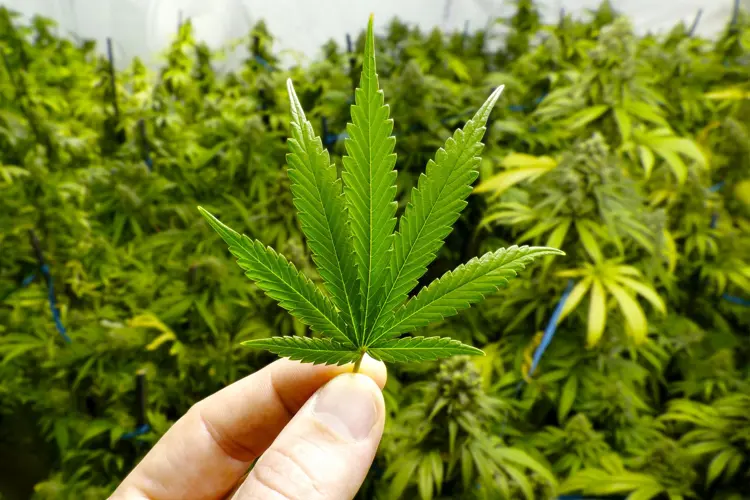
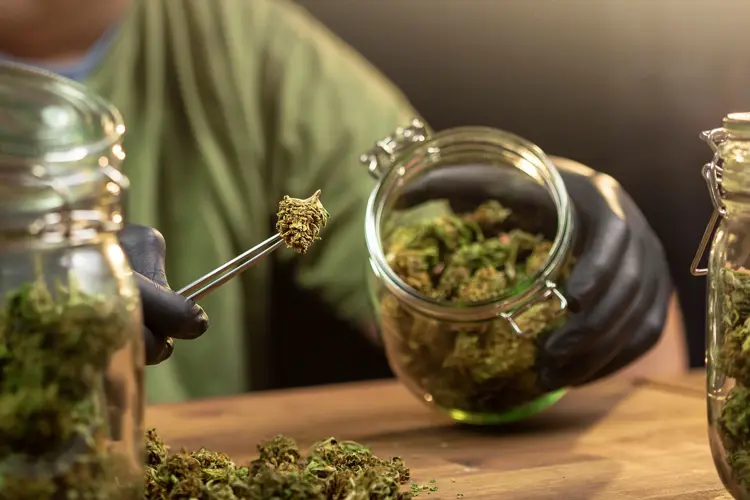

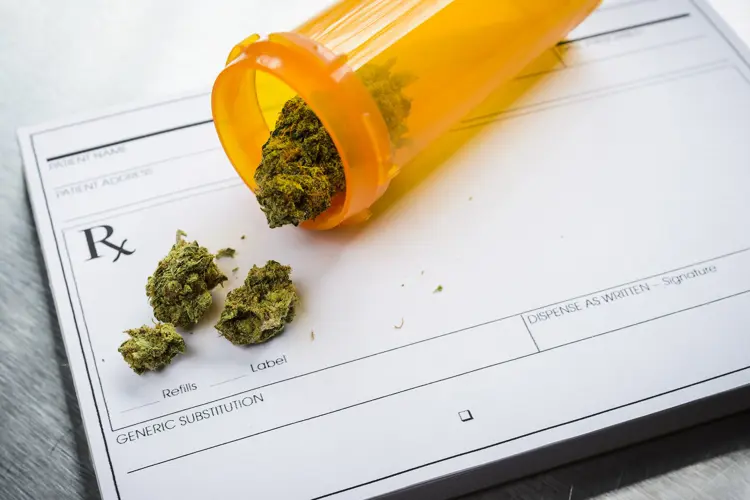
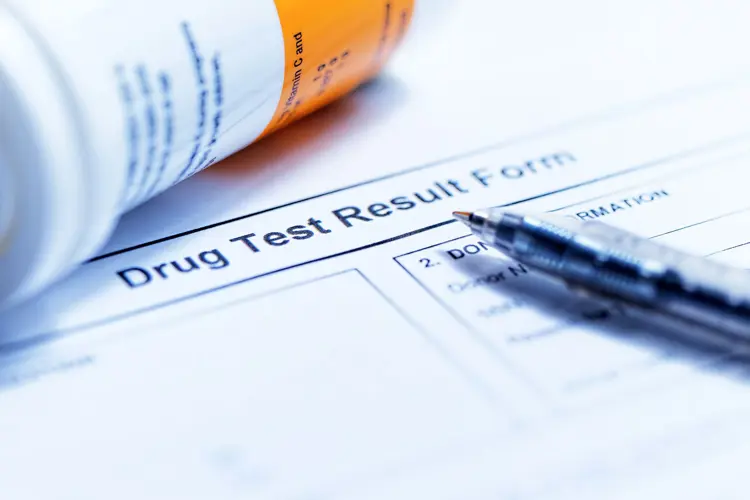
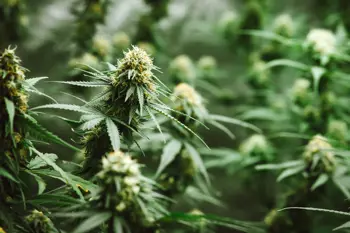
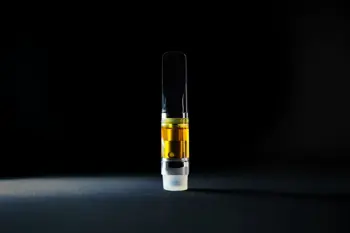
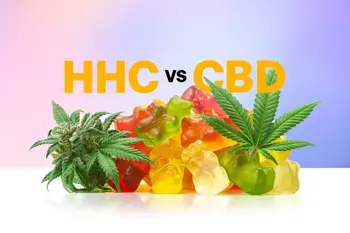
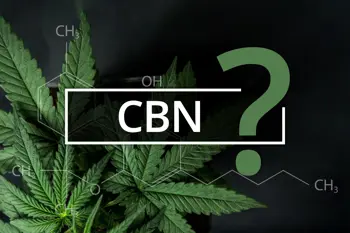
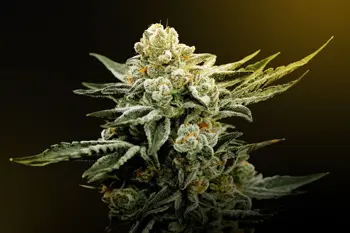
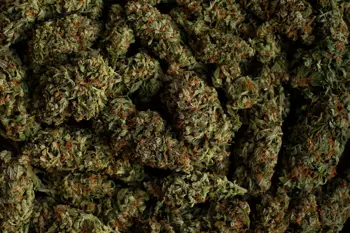
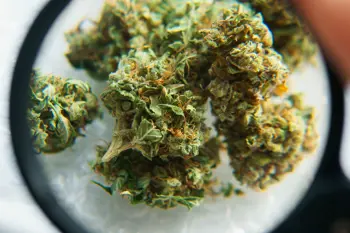
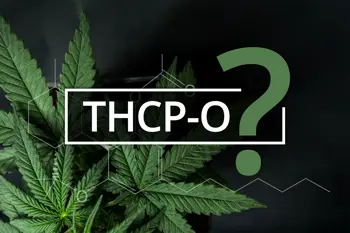
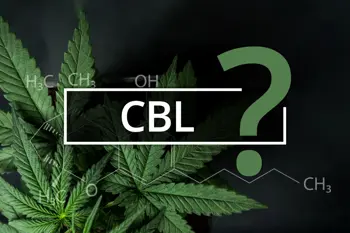
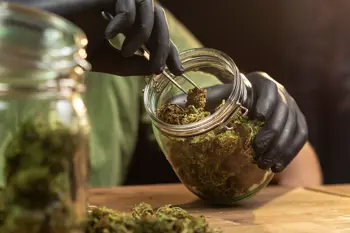
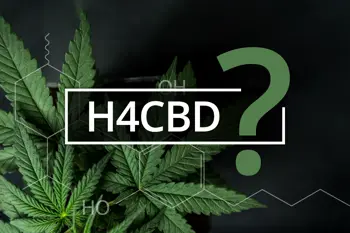
![Image for What Is THC-JD? Legality, Effects, Potency Explored [Update]](https://media.vaping360.com/images/what-is-thc-jd-thumbnail-20a40b517a.webp?imageType=Small)

